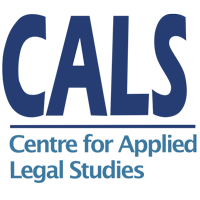Social and labour plans
When a company applies for a mining right, it is required to submit a number of documents on its plans to mine, which the Department of Mineral Resources then uses to assess whether the potential mine is viable. One of these documents is a social and labour plan (or ‘SLP’). Social and labour plans set out how the company intends to share some of the benefits that flow from mining. These include, for example, initiatives for developing the skills of their employees; upgrading local schools and roads; as well as providing housing, water and sanitation in the area. Once a company is awarded a mining right, the social and labour plan they submitted becomes a binding legal document.
Outside of anecdotal evidence, very little research on social and labour plans has been conducted in South Africa. As a result, CALS established a social and labour plan project to investigate whether the system is working effectively. The project was broken down into three phases which analysed how social and labour plans were designed, how they were implemented and how they could be improved.
The project began in 2014 with the design phase where we collected social and labour plans to analyse. This involved making a large number of requests for the documents under the Promotion of Access to Information Act, which was very successful. We were able to acquire 50 social and labour plans from mines extracting different minerals in areas around the country. During this time, CALS developed a tool for analysing the documents according to regulatory requirements, which also enabled us to assist in two individual cases.
Firstly, we provided a community living in Mokopane with an expert opinion on the social and labour plan of a platinum mine planned for their area. Secondly, we included an analysis of Lonmin’s social and labour plan as part of CALS’ submissions to the Marikana Commission of Inquiry, where we represented the South African Human Rights Commission. The analysis showed that, over the four years prior to the Marikana massacre, Lonmin did not fulfil the obligations set out in its social and labour plan. For example, Lonmin undertook in this time to build 5,500 houses for workers and their families but, by their own admission, built only three – achieving less than 0,1% of their target.
In 2015, we continued the project with a further analysis of the 50 social and labour plans collected. Using the tool we developed, the analysis covered over 4,500 individual data points. The findings of this study have been made available in our first project report, Social and Labour Plans First Report: Design Phase.
From 2016, CALS began the second phase of the project, examining in depth how social and labour plans are implemented by mines. Drawing on individual case studies and over 150 interviews with affected community members and other critical role players in the mining industry, we analysed whether mines had fulfilled the obligations set out in their social and labour plans. The findings of this study can be found in the next report in the series, Social and Labour Plans Second Report: Implementation Phase.
At the same time, the project also produced a toolkit aimed at mining affected communities interested in learning more about the social and labour plan system which provides practical guidance on how to read the plan and conduct a social audit. The Social and Labour Plan Mining Community Toolkit is available in five different languages.
In 2017, we entered the final phase of the project, examining the failures of the social and labour plan system and how to address them. The first two reports identified systemic problems in the social and labour plan system which prevent it from achieving its objectives of transforming the mining sector and benefiting mining affected communities. The final report, Social and Labour Plans Third Report: Alternative Models for Minerl-Based Social, proposes community-driven models and immediate measures to improve the social and labour plan system.
CALS continues to work with our partner and client communities to request social and labour plans and run workshops on social auditing. In 2018, we began a project assisting mining affected communities in five different provinces to analyse the social and labour plans impacting them and audit the promised projects they contained. This work is captured in our contributions to a report produced by ActionAid South Africa, Mining in South Africa: Social Audit Baseline Report.


